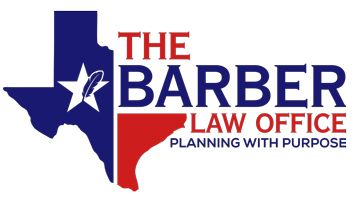Estate Planning For Your Digital Legacy

One aspect of your estate plan that you may not yet have taken into consideration is your digital legacy. Arranging what happens to your digital assets and information when you pass away has become an increasingly essential component of financial literacy — and comprehensive estate planning.
According to Pew Research, the number of adults in the United States who say they use the internet has grown from 52 percent in 2000 to 93 percent in 2021, with 85 percent using the internet daily. Many people rely on digital technology to socialize, work, pay bills, and manage their affairs.
Making Digital Assets a Part of Your Estate Plan
People frequently start by thinking about their material possessions, such as their homes, automobiles, money, and personal objects like jewelry collections or photo albums, while they are planning their legacies. Yet, it is equally critical to take into account digital assets and information, which can have great monetary and personal value, while making future plans.
By including digital assets in your estate plan, you may safeguard your family, pass on items of monetary or sentimental value, make things easier for your loved ones, and maintain your legacy.
Let's say, for instance, that you die or get sick or have an accident and become unable to work. In that event, your loved ones may require access to your passwords in order to continue paying payments and handling tasks that you are no longer capable of handling. You need to give specific directions on how to access your electronic information in addition to designating a loved one as your agent under a power of attorney.
However, you might have important digital assets that you want to leave to your loved ones in the same way that you would tangible possessions. You may make sure your family receives the crucial items you have stored on a computer, flash drive, or on the cloud by creating an electronic legacy plan.
Your digital assets include anything stored electronically that offers or has value, such as online accounts or e-files that you own or control. This may include the following:
How Do Digital Assets Work?
- Passwords - Passwords provide you and your loved ones access to a variety of accounts, including those that hold your financial information or where you make payments for bills like rent or utilities.
- Encryption keys - serve as passwords to digital content and guard against unauthorized access to electronic data. Encryption keys are demonstrated by the iCloud account password and the passcode required to unlock an iPhone.
- It can be more difficult to recover lost encryption keys than it is to recover lost passwords. Your surviving family members may not have access to your digital possessions if you pass away or become incapable of communicating without transferring your encryption keys.
- Email accounts - can help you keep track of critical information.
- An example would be a business owner who has important and pertinent company correspondence in an email account.
- Social Media - Accounts on social networking sites such as Facebook and Twitter often have sentimental or even monetary worth. They frequently include images or videos of you that your surviving loved ones might find interesting.
- Digital pictures and music - Digital files like pictures, music, and movies can be valuable both emotionally and financially. Your loved ones can receive your digital images and music in the same way that photo albums and vinyl recordings can be passed down. Digital music can represent a person's individual taste and may even have a monetary value. Surviving loved ones may treasure photographs, especially if they recall memories of the person they lost.
- Art - Perhaps you have digital versions of your own professional creative work, such as art, recorded music, and writing. Such effort might potentially provide revenue for your family after you pass away, in addition to having enormous significance for your loved ones
Organizing Digital Assets
Your digital assets include anything stored electronically that offers or has value, such as online accounts or e-files that you own or control. This may include the following:
Start by taking an inventory of your electronic items to organize your data and put it in order. There can be things there that you have forgotten about, such as unused subscriptions or outdated accounts, as well as valuable technological objects like digital images.
You may organize and store your login information with the use of a password manager. These services keep track of your usernames, passwords, security question responses, Personal Identification Numbers (PINs), and other login information.
Instead of using the same password for many accounts, you may protect your digital assets by using a password manager and making strong password choices. Password managers include, for instance:
- LastPass
- 1password
- SecureSafe
Writing Instructions for a Digital Executor
You can name a loved one in your will to manage and distribute your digital assets after your passing. While wills are public records, creating separate written instructions for your online executor might help you express your preferences in secret.
Written directions would allow you to:
- Create a list of your devices and accounts.
- Describe how to use your digital assets (for instance, detailing where to locate passwords)
- Specify what you want to happen to each of your technological possessions.
You can choose whether you want your loved ones to remove your digital assets, so creating a digital "death," when you specify what you want to happen to your digital assets. Alternatively, you could direct them to keep the e-asset and provide it to a beneficiary.
Legacy Contacts and Trusted Individuals
Your written instructions can also specify how you want your social media and specific other internet accounts to be used.
You can designate legacy contacts to handle your social media accounts after you pass away by changing the settings on your accounts. For instance, Facebook lets legacy contacts manage accounts that have been memorialized. No one can log in and post as you when Facebook saves your account, but your loved ones can still view your Facebook memories.
Google gives users the option to choose a reliable person to get their data or to delete their accounts after a certain amount of inactivity.
Benefits of Legacy Planning for Digital Assets
The following are some advantages that you and your loved ones can enjoy by include your digital assets in your estate plan, despite the fact that making final arrangements for your digital property and accounts may seem onerous;
- Conserves sentimental and priceless digital stuff for your heirs.
- Reduce the load of estate administration on your family. Your loved ones can access your digital assets and navigate your accounts with ease if you leave them explicit instructions.
- Arranges for the erasure of private digital data after your death to protect your privacy.
- Protects your loved ones from identity thieves who might try to pose as you after your death and, in some situations, steal their inheritance.
Despite the fact that digital estate planning is still a relatively new idea, given how pervasive technology has become, it makes sense to plan your electronic legacy. A vital financial skill today is creating a digital estate strategy. For additional information on creating an electronic legacy plan, speak with an estate planning attorney.
